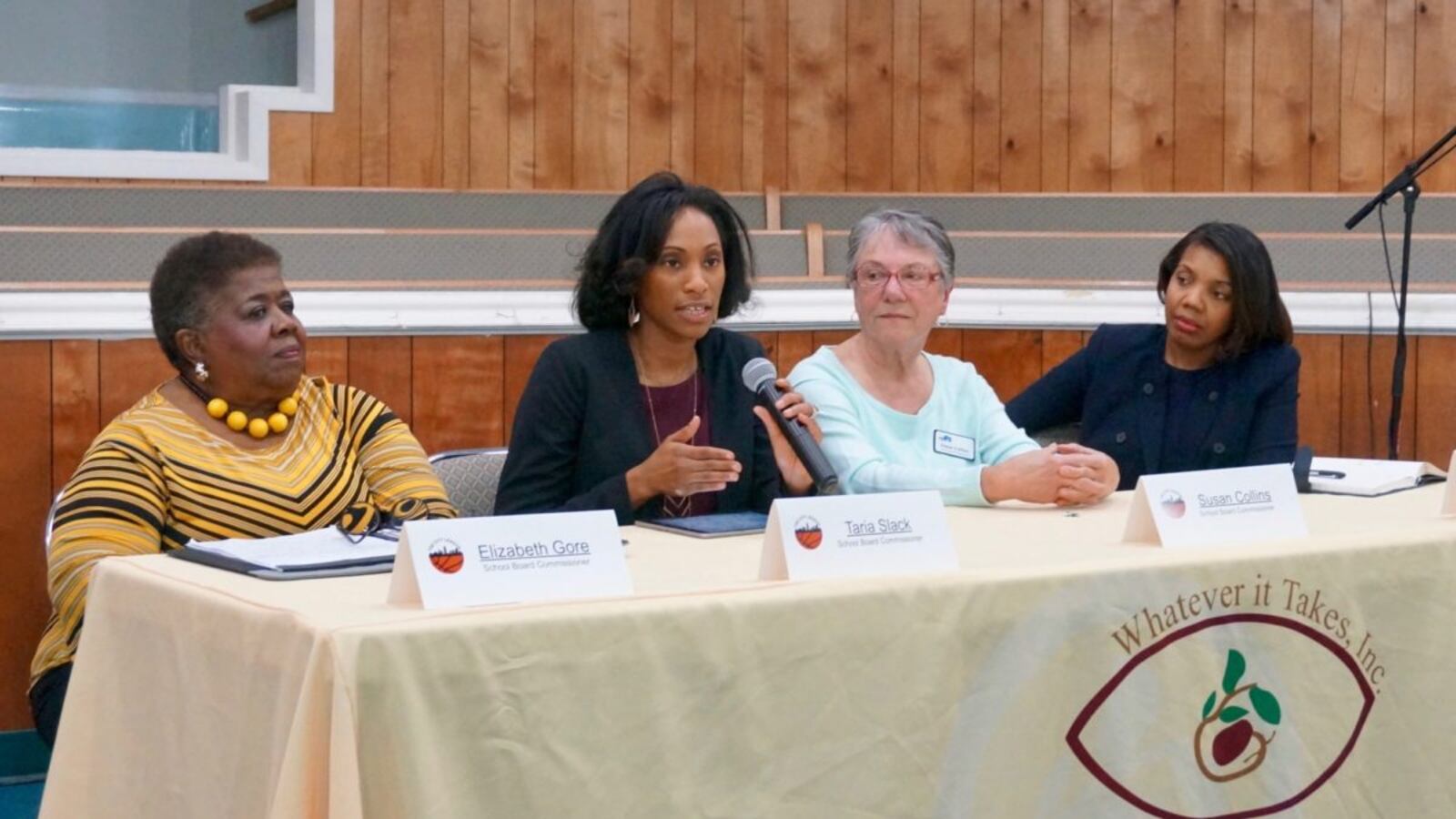The new faces of Indianapolis Public Schools were on display in a near northside church Thursday evening as interim Superintendent Aleesia Johnson joined three board members, two of whom are newly elected skeptics of the administration, for a panel discussion.
The conversation spanned an array of issues, from what makes a quality school to whether Indianapolis should have a moratorium on charter schools. But it revealed some areas where the newly elected board members have found common ground with the administration — and areas where divides persist.
The event was one of the first public appearances by board members Taria Slack and Susan Collins, who unseated incumbents after pledging to increase community engagement, and Johnson. The panel also included board member Elizabeth Gore. It was organized by the City League, which hosts a men’s basketball tournament as well as supporting the neighborhood.
Johnson, who previously served as former Superintendent Lewis Ferebee’s deputy, is seen as a leading candidate to take over permanently, though she has declined to say whether she will apply.
After an election that was sometimes acrimonious, the discussion was low-key and friendly, with host Jamyce Banks, the founder of a local consulting firm, emphasizing that the district is entering a new phase.
“We’re not here to talk about old policy, old people, or the past,” she said. “We’re here to talk about what’s the future.”
Collins said that although she is critical of the influence outside groups that support charter schools have on the district, she has seen some ways the district has improved, such as its business practices.
“Frankly, we needed better management — better management of our funds, better management of our instructional focus,” Collins said.
Ferebee’s administration faced persistent criticism for failing to communicate with the community, even from board members who largely supported the policies he was rolling out. But a common theme that emerged in the forum was optimism about the district’s ability to engage with parents in the future.
Slack said that she was glad to see a new structure for the communications department that places more emphasis on involving families. “I’m happy to see that we will have more parent engagement.”
Officials also need to communicate with staff, Johnson added, so they understand why the district is making changes.
“We are also having a lot of conversations around, how do we make sure our own employees are our best advocates?” she said. “If I am a food service staff person at one school, how am I finding out what the vision of the district is?”
Despite the consensus during much of the discussion, there were still areas where Johnson diverged from some of the board members — most notable their views of charter schools.
Gore said she supported school choice, but the city could be saturated with charter schools that are taking resources away from the district. And Slack said that she wanted more data before continuing to expand the schools.
“I want to push pause to see if it works,” Slack added. “We’re not willing to play guinea pig with our kids.”
Johnson, however, was more supportive, saying that the district should collaborate with charter schools rather than build walls. “My personal perspective on this is, I want great schools for kids,” she said. “Where I don’t get hung up is on type.”


